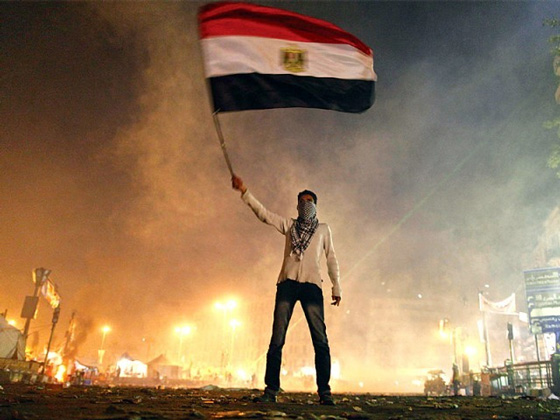
At the time of writing Egypt seems on the brink of a state of total anarchy. Port Said remains, for the second day running, gripped by deadly riots triggered by the sentencing to death of 21 defendants in last year’s deadly football riots (none of which are policemen). Suez remains in a state of tense calm as army patrols attempt to bring a semblance of normalcy to the city. Nationwide, vigilante groups are carrying out systematic attacks against government buildings and the offices of the ruling Freedom and Justice Party. The Police Forces seem to be in a state of open mutiny as they expelled the Minister from a funeral and are locked in a deadly battle in downtown Cairo that has spilled from Tahrir to the corniche and beyond multiple times in the past few days. Meanwhile the opposition are staging march after march to the Shura council in an attempt to disrupt it. The Brotherhood, demonstrating its incredible capacity for partisanship in the face of disaster, are attempting to play the “Race card,” branding those participating in the anarchy (which isn’t necessarily aimed at them) as stooges of the Church… It all spells ill for Egypt.
Violence, as a vehicle for political expression was long confined to the state and fringe Islamist movements. The events of the past few days indicate that Egypt may be seeing a “democratization” of the means of violence (possibly the only thing that has been democratized). Eroding confidence in the courts as a guarantor of Justice and the lack of avenues for political self-expression are two of the conditions that created the necessary conditions for the proliferation of militias and vigilante movements.
When President Morsi issued his constitutional declaration in November 2012, he claimed he was justified due to the partisan nature of the Egyptian courts. While his fears may have been justified the precedent set (and later by his followers who surrounded the Supreme Court) indicated that it was ok to threaten, even with violence as in the case of his supporters, the courts when you don’t like the outcome of the trial. As the residents of Port Said react to the news that 21 of their community will be sentenced to death, they may feel vindicated by the President’s actions in their contempt for court rulings.
As he tries to navigate the country through these difficult times President Morsi should engage the opposition in a meaningful way. It is imperative that he restore confidence in the courts as the arbiter of Justice, perhaps by allowing them to lead the rewriting of contentious clauses in the constitution. He should reshuffle his cabinet, giving key ministerial positions to opposition figures and bringing the Brotherhood decision makers formally into government, increasing the level of transparency and cooperation in the transitional government. These actions may restore confidence in the rapidly eroding institutions of the state and would allow the crisis to be resolved under civilian oversight. To continue his time tried policy of doubling down on his bad bets would be to push the country further into anarchy and to continue the needless loss of Egyptian life.
Note: At the time of writing Port Said remains in a state of lawlessness with an ever climbing death toll. Morsi has yet to address the nation. There has been no announcement of Emergency Law.


